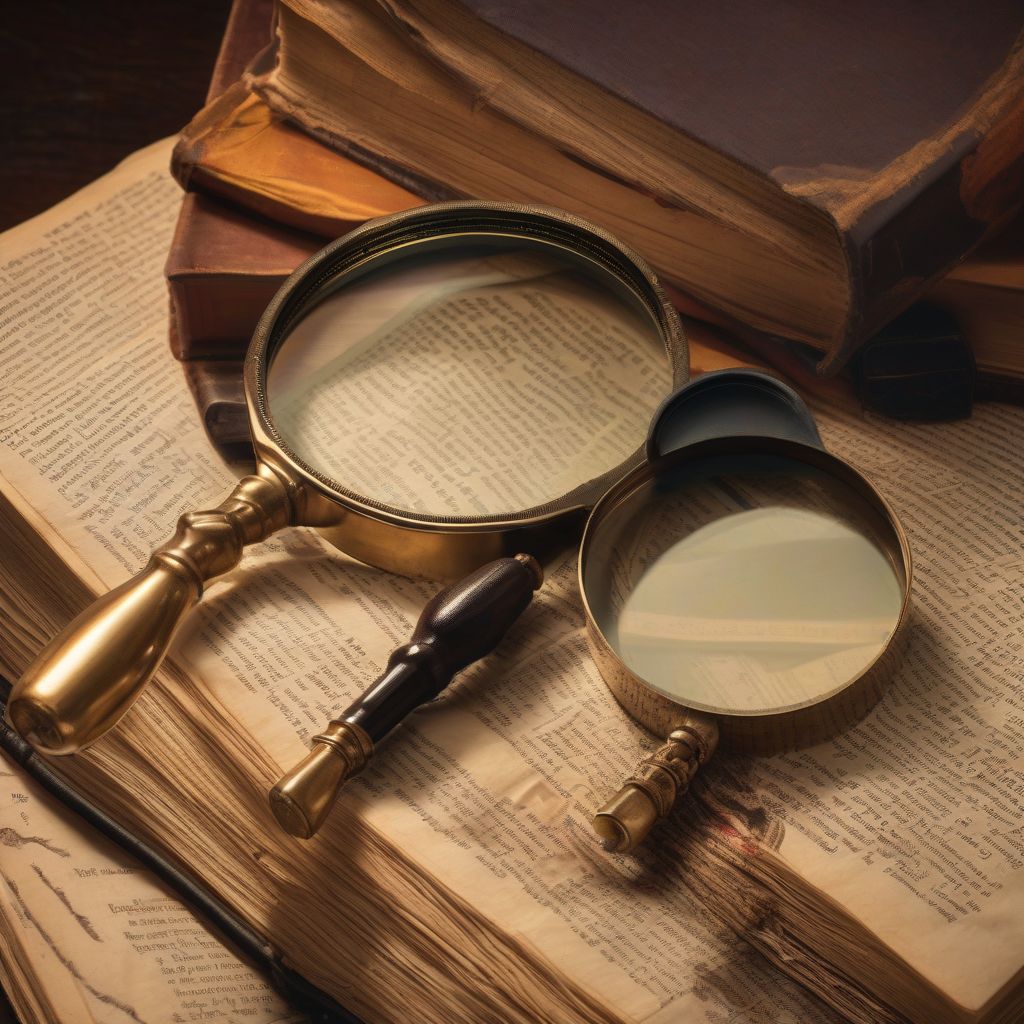Have you ever found yourself captivated by a story that transcends time, a tale woven centuries ago yet resonating deeply within your modern soul? That, my friend, is the magic of classic literature. These works aren’t just dusty relics of the past; they’re vibrant tapestries of human experience, exploring timeless themes that continue to fascinate and challenge readers across generations.
But how do we unpack these intricate themes, hidden beneath layers of eloquent prose and historical context? It’s like embarking on a literary treasure hunt, but fear not, intrepid reader! This exploration of classic literary themes will equip you with the tools to analyze these masterpieces and unearth the profound insights they hold.
Deciphering the Human Condition: Common Themes in Classic Literature
Classic literature, from the ancient myths to the Victorian novels, often grapples with universal aspects of the human experience. Let’s delve into some of the most prevalent themes you’re likely to encounter:
1. Love and Loss: A Timeless Tango
Ah, love! The driving force behind countless sonnets, tragedies, and epic adventures. Classic literature explores the multifaceted nature of love in all its glory and anguish.
- Romantic Love: Think Romeo and Juliet’s passionate but ill-fated romance, a testament to the enduring power of love even in the face of societal pressures and feuding families.
- Familial Love: Consider the complex dynamics between fathers and sons in Shakespeare’s Hamlet or the unwavering loyalty between siblings in Louisa May Alcott’s Little Women.
- The Loss of Love: Emily Dickinson’s poignant poetry explores the depths of grief and the lingering presence of lost love.
By examining how these different facets of love shape characters and drive the narrative, we gain a deeper understanding of the complexities of human relationships.
2. The Inevitability of Change: Time’s Relentless March
Time, that relentless river, flows through the heart of classic literature. Authors grapple with the passage of time, the inevitability of change, and how individuals navigate these shifts.
- Social Change: Charles Dickens, a master of social commentary, vividly portrays the societal transformations of Victorian England in novels like Oliver Twist and A Tale of Two Cities, highlighting issues of poverty, class inequality, and the struggle for justice.
- Personal Growth: Jane Austen’s Pride and Prejudice charts Elizabeth Bennet’s journey of self-discovery as she confronts her own prejudices and learns to navigate love and societal expectations.
Analyzing how characters adapt (or fail to adapt) to change provides insights into resilience, the human capacity for growth, and the often-unpredictable nature of life’s journey.
3. The Struggle for Power: From Individuals to Empires
Power, in its various forms, is a central theme explored in classic literature. Whether it’s the pursuit of political dominance, the dynamics of social hierarchies, or the internal battles within a single character, the struggle for power fuels conflict and raises moral questions.
- Political Power: William Shakespeare’s history plays, such as Richard III and Macbeth, vividly portray the corrupting influence of ambition and the treacherous nature of political power.
- Social Power: Harper Lee’s To Kill a Mockingbird exposes the injustices faced by marginalized communities in the American South, highlighting the abuse of power based on race and class.
- Personal Power: Charlotte Brontë’s Jane Eyre follows Jane’s quest for autonomy and self-determination in a patriarchal society, emphasizing the importance of inner strength and challenging societal norms.
By analyzing the motivations behind the pursuit of power, the consequences of its abuse, and the individuals who dare to challenge the status quo, we gain a deeper understanding of the complexities of power dynamics and their impact on individuals and societies.
 Detailed Analysis of Classic Literature
Detailed Analysis of Classic Literature
4. The Search for Meaning: A Universal Quest
Many classic works explore the fundamental human desire to find meaning and purpose in a seemingly chaotic world. Characters grapple with existential questions, searching for answers in religion, philosophy, love, or the pursuit of knowledge.
- Spiritual Quests: John Bunyan’s The Pilgrim’s Progress is an allegorical journey of a man named Christian as he navigates challenges and temptations on his path to spiritual enlightenment.
- Philosophical Inquiry: Fyodor Dostoevsky’s Crime and Punishment delves into the psychological torment of Rodion Raskolnikov, a young man who commits murder and grapples with the moral and philosophical implications of his actions.
By examining how characters seek meaning, the challenges they face, and the answers they ultimately embrace (or reject), we gain insights into the enduring human need to find purpose in a complex world.
5. Good vs. Evil: The Eternal Conflict
The battle between good and evil is a recurring theme in classic literature, often represented through external conflicts and internal struggles within characters.
- Epic Battles: J.R.R. Tolkien’s The Lord of the Rings depicts an epic struggle between the forces of good and evil, highlighting themes of courage, sacrifice, and the corrupting nature of power.
- Moral Dilemmas: Shakespeare’s tragedies, such as Hamlet and Macbeth, explore the complexities of human nature as characters grapple with ambition, betrayal, and the consequences of their choices.
Examining how authors portray this timeless conflict provides insights into ethical dilemmas, the nature of morality, and the choices individuals make when confronted with difficult decisions.
Tips for Your Own Detailed Analysis
Embarking on a detailed analysis of classic literature might feel daunting, but here are a few tips to guide your journey:
- Read Actively: Engage with the text by taking notes, highlighting key passages, and jotting down questions or observations.
- Consider the Historical Context: Research the author’s life, the social and political climate of the time period, and any relevant historical events that might inform the themes of the work.
- Look for Symbols and Motifs: Authors often use symbols and recurring images or ideas (motifs) to reinforce themes. Pay attention to these literary devices and how they contribute to the overall meaning.
- Don’t Be Afraid to Ask Questions: There’s no right or wrong answer when interpreting literature. Embrace ambiguity, ask thought-provoking questions, and be open to different perspectives.
- Enjoy the Journey: Analyzing classic literature can be challenging but also incredibly rewarding. Approach these works with curiosity and an open mind, and allow yourself to be drawn into the rich tapestry of human experience they offer.
Conclusion: Embracing the Enduring Power of Classic Literature
As we’ve explored, classic literature offers a timeless window into the human experience. By engaging in detailed analysis, we unlock layers of meaning, gain insights into universal themes, and deepen our understanding of ourselves and the world around us. So, pick up a classic, grab your thinking cap, and embark on your own literary adventure.
Want to delve deeper into specific authors or themes? Explore more insights and analysis on our blog, where we unravel the complexities of classic literature, one masterpiece at a time!
[amazon bestseller=”classic literature”]
We’d love to hear your thoughts! What are some of your favorite classic works, and what themes resonate most strongly with you? Share your reflections in the comments below!
